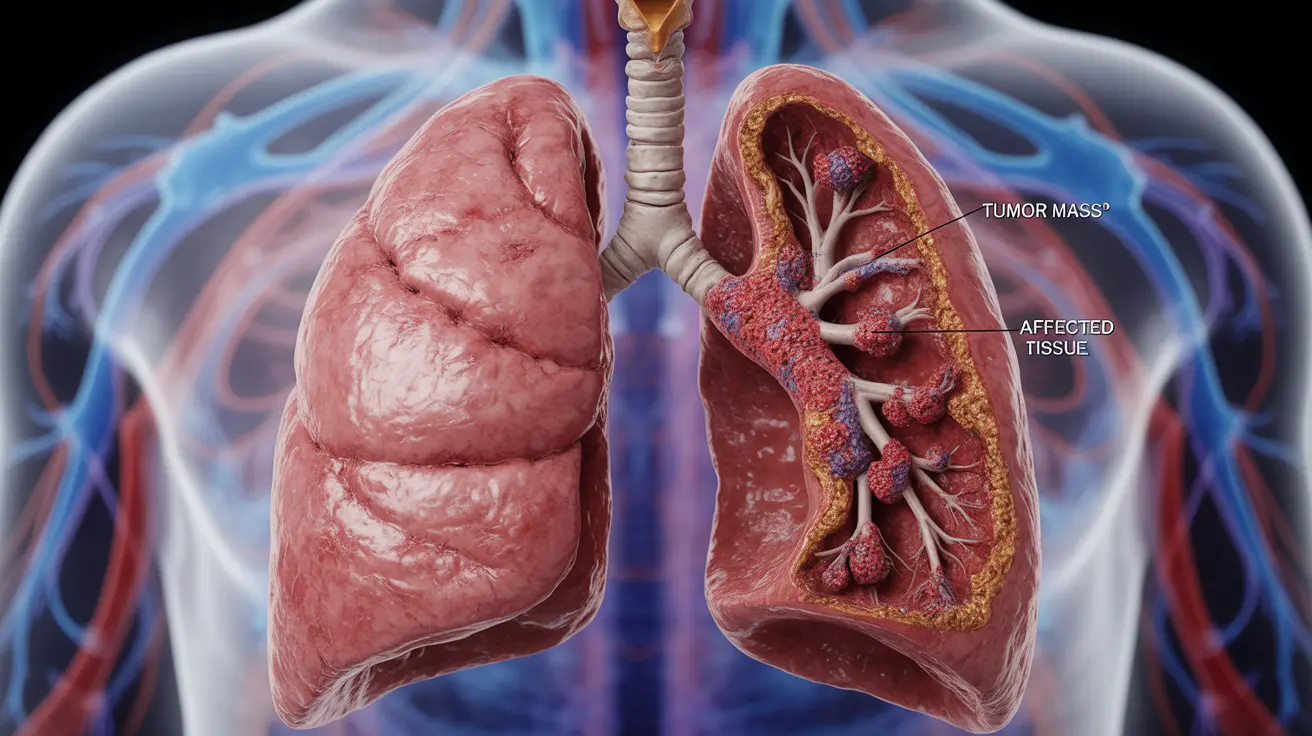Stage 3 lung cancer represents an advanced form of the disease that requires comprehensive understanding and immediate medical attention. At this stage, cancer has spread beyond the lungs to nearby tissues or lymph nodes, making treatment more complex but still potentially effective with the right approach.
For patients and their loved ones, understanding the specifics of stage 3 lung cancer is crucial for making informed decisions about treatment options and managing expectations. This guide explores the essential aspects of stage 3 lung cancer, from recognizing symptoms to understanding treatment possibilities and factors affecting prognosis.
Key Symptoms and Diagnosis of Stage 3 Lung Cancer
Stage 3 lung cancer often presents with distinct symptoms that may become more noticeable as the disease progresses. Common indicators include:
- Persistent cough that worsens over time
- Chest pain or discomfort
- Shortness of breath
- Unexplained weight loss
- Recurring respiratory infections
- Hoarseness or changes in voice
- Fatigue and weakness
Diagnosis typically involves multiple testing methods to confirm the presence and extent of cancer. These may include:
- CT scans and PET scans
- Bronchoscopy
- Tissue biopsy
- Mediastinoscopy
- Blood tests
- Pulmonary function tests
Treatment Approaches for Stage 3 Lung Cancer
Treatment for stage 3 lung cancer usually involves a multimodal approach, combining different therapies for optimal results. The main treatment options include:
Chemotherapy and Radiation
Combined chemotherapy and radiation therapy (chemoradiation) often serves as the primary treatment approach. This combination can help shrink tumors and target cancer cells that have spread to nearby areas.
Surgical Options
Surgery may be possible for some stage 3 patients, particularly those with specific types of tumor spread. However, it's typically combined with other treatments rather than used alone.
Targeted Therapy and Immunotherapy
Modern treatment options include targeted therapies that attack specific cancer mutations and immunotherapy drugs that help the immune system fight cancer cells more effectively.
Factors Affecting Prognosis and Survival
Several key factors influence the outlook for stage 3 lung cancer patients:
- Overall health and fitness level
- Age at diagnosis
- Specific type of lung cancer (small cell vs. non-small cell)
- Response to initial treatments
- Presence of specific genetic mutations
- Access to comprehensive medical care
Frequently Asked Questions
What are the most common symptoms of stage 3 lung cancer and how are they diagnosed?
Stage 3 lung cancer typically presents with persistent cough, chest pain, shortness of breath, and unexplained weight loss. Diagnosis involves imaging tests like CT scans, PET scans, and tissue biopsies to confirm the presence and extent of cancer.
How is stage 3 lung cancer typically treated, and what are the most effective treatment options?
Stage 3 lung cancer usually requires a combination of treatments, including chemotherapy, radiation therapy, and possibly surgery. The most effective approach often involves concurrent chemoradiation, sometimes followed by immunotherapy depending on specific cancer characteristics.
What factors affect the prognosis and survival rate for someone with stage 3 lung cancer?
Prognosis depends on factors such as the patient's age, overall health, specific type of lung cancer, response to treatment, and access to comprehensive care. The presence of certain genetic mutations can also impact treatment effectiveness and survival rates.
Can stage 3 lung cancer be managed with surgery alone, or are other treatments necessary?
Surgery alone is rarely sufficient for stage 3 lung cancer. Most patients require a combination of treatments, including chemotherapy, radiation therapy, and possibly immunotherapy or targeted therapy, for optimal outcomes.
How does the type of lung cancer, such as non-small cell or small cell, influence the treatment plan and outlook for stage 3 patients?
Non-small cell and small cell lung cancers respond differently to treatments and have different growth patterns. Small cell lung cancer typically responds well to initial chemotherapy but may recur, while non-small cell lung cancer might be more amenable to surgery and targeted therapies, depending on specific genetic markers.




